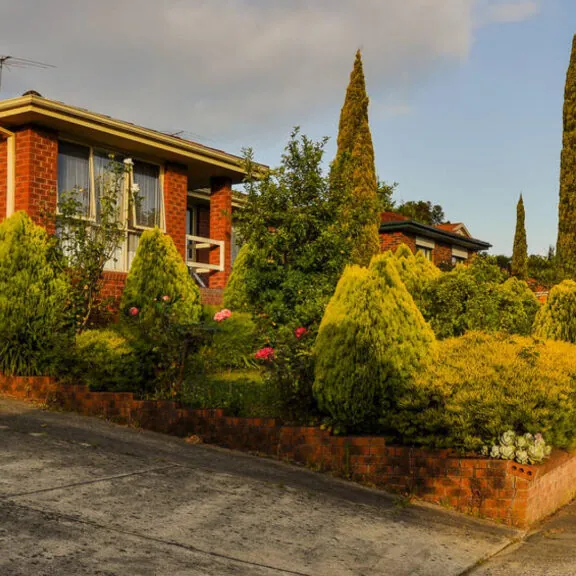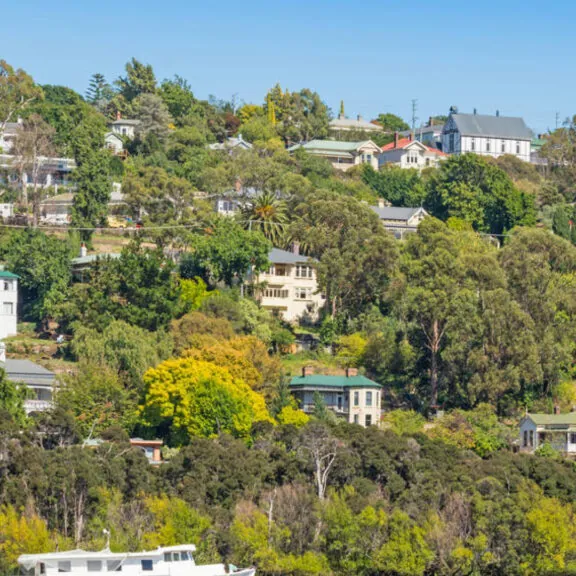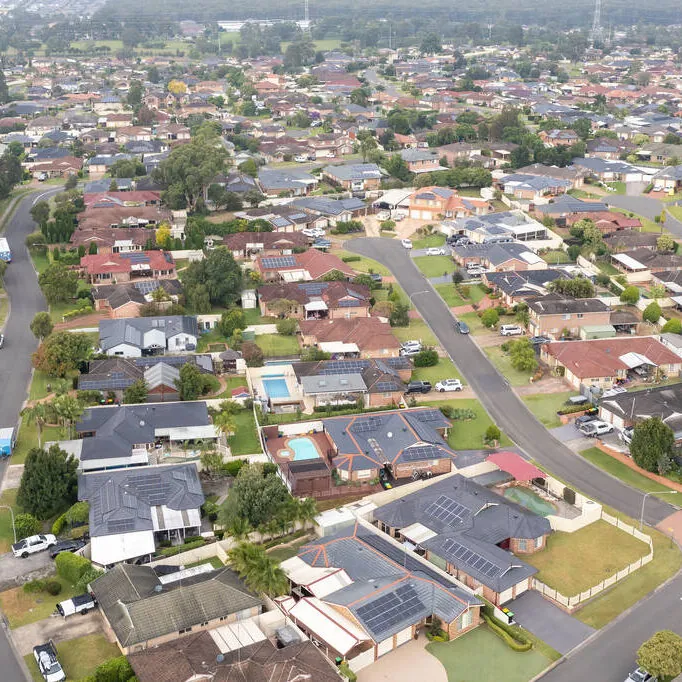You may be chasing more affordable prices, dreaming of a lifestyle change, or spotting investment potential in a different market altogether. No matter the reason, buying property in another state can be pretty tempting. But let’s be clear: buying interstate isn’t quite the same as finding a place down the road. You may have to […]
The First-Home Buyers 5% Home Loan Deposit Scheme Explained
As a first home buyer in Australia, one of the biggest hurdles you’ll face is coming up with a substantial deposit. Traditionally, lenders have required a deposit of at least 20% of the property’s value, but what if you could secure your dream home with just a 5% deposit? That is possible through the First Home Guarantee, formerly known as the First Home Loan Deposit Scheme and popularly called the “First-Home Buyers 5% Deposit Scheme.” Today, let us help you explore this program.
What Is the First Home Guarantee & How Does It Work?
This government-backed initiative makes homeownership more accessible for Australians looking to purchase their first home. It enables eligible first-home buyers to own a property with as little as a 5% deposit without spending for a Lenders’ Mortgage Insurance (LMI), which lenders often require for home loans with lower deposits.
Under the First Home Guarantee scheme, the Australian government guarantees up to 15% of the property’s value, bridging the gap between your 5% deposit and the typical 20%. For example, if you’re purchasing a $500,000 house in Hobart, you’d only need to contribute a $25,000 deposit (5%) because the government would guarantee $75,000 (15%) of the loan amount. Your loan won’t incur LMI costs, which can save you thousands of dollars in the upfront costs of buying a home.
Who Is Eligible for the First Home Guarantee?
To be eligible for the First Home Guarantee or the First-Home Buyers 5% Deposit Scheme, you must meet the following criteria:
- You must be an Australian citizen, at least 18 years old (from July 1, 2023, permanent residents will also be eligible).
- You must be a first-home buyer who has not previously owned or had an interest in a residential property in Australia.
- You must have a taxable income below the specified thresholds (currently $125,000 for individuals and $200,000 for couples).
- You must purchase a property that falls within the specified price caps for your chosen location (In Tasmania’s capital city/regional centre, the property price cap is $600,000, while it’s $450,000 for the rest of the state).
- You must buy a property that falls within the specified property types: an existing apartment, house or townhouse, an off-the-plan property, a house-and-land package, or land & a separate contract to construct a home.
Note that the First Home Guarantee is subject to an annual allocation of places, which means it’s available on a first-come, first-served basis. For the entire FY 2023-24, there will only be 35,000 available places. So, if you’re interested in taking advantage of this scheme, it’s best to act quickly and consult a mortgage broker or lender to ensure you meet all the eligibility requirements.
How to Apply for the First Home Buyers 5% Deposit Scheme
To apply for the First Home Guarantee or First Home Owners 5% Deposit Scheme, you’ll need to secure a loan with one of the participating lenders or through a mortgage broker. They will assess your eligibility and guide you through the application process, which typically involves providing documentation such as proof of income, employment details, and evidence of your deposit savings.
Once approved, the lender will work with the National Housing Finance and Investment Corporation (NHFIC) to facilitate the government guarantee, allowing you to proceed with your home purchase without the burden of LMI.

Take Note of the Risks
While the First Home Guarantee (formerly First Home Loan Deposit Scheme) is beneficial for first time buyers, it may come with a few risks you should note:
Larger Loan Amount
With a smaller 5% deposit, the amount borrowed will be larger than paying the typical 20% deposit. This means the total interest paid over the life of the loan will likely be higher since interest is calculated on the outstanding loan balance.
Higher Mortgage Repayments
Because the loan amount is larger with only a 5% home loan deposit, the minimum required mortgage repayments will also be higher. This could put more financial pressure on borrowers and make it harder to manage the loan repayments.
Loan Term Limitations
Most lenders have a maximum loan term of 30 years. With a larger loan, you may need to take the full 30 years to pay it off. You will likely have less flexibility than those with smaller loans who can pay them off sooner.
Difficulty Building Equity
With only 5% equity in the property from the deposit, it may take longer for you to build substantial equity and benefit from potential property value appreciation.
Risk of Negative Equity
If property values decline shortly after purchase, there is a higher risk of the loan balance exceeding the property’s value, putting you in negative equity.
Limits on Refinancing or Selling
Having little equity can make it more difficult to refinance to a better loan later or to sell and move properties, as more equity is generally required for these transactions.
Let Us Help You Explore the Scheme Further
The First Home Guarantee is a game-changer for many first time home buyers in Australia. You can overcome one of the most significant financial hurdles and secure your dream home with as little as a 5% deposit. However, it’s essential to remember that while buying a home, the First Home Guarantee can help you enter the property market, but it is still a significant financial commitment and may come with a few risks.
So, if you’re a first-time buyer, don’t hesitate to contact us to help you explore this exciting opportunity and decide whether it’s the most suitable government scheme. Our mortgage brokers in Hobart will help you discover other available government grants and cost-efficient first-home buyer loans in Australia. You can also check out our Ultimate First-Home Buyer Checklist to learn more about your property journey.
Enquire Now
Find Your Perfect Finance Solution
Let's discuss your finance needs. We’re here to help.
More posts from Deltos Finance

Suburbs with the Highest Rental Yield in Tasmania
The term “rental yield” is music to any property investor’s ears. It’s the key metric that indicates the annual return on your investment, essentially the percentage of the property’s value that comes back to you in rental income. In a market like Tasmania, which has been gaining traction for its overall investment appeal, pinpointing the […]

Launceston: A ‘Second Wind’ Property Market You Should Invest in Now
When talk turns to Tasmania’s property scene, it’s easy for the spotlight to shine brightly on Hobart, with its bustling waterfront and historic charm. But just a little further north, nestled at the head of the picturesque Tamar Valley, lies Launceston—a city that quietly hits its stride and presents a compelling proposition for savvy property […]

How Often Does Property Double in Value?
Every homeowner has likely dreamed of their property doubling in value in the future, turning into a valuable nest egg or funding their next big adventure. But how long does it actually take for a property to double in value? And how often does it happen? While there’s no magic eight-ball to predict the property […]

Stamp Duty Exemption for First-Home Buyers in Tasmania: Has It Paid Off?
Purchasing a property has historically come with major financial difficulties, especially for first-home buyers in Tasmania or any other state for that matter. The stamp duty is one of those most notable monetary challenges for homebuyers. Essentially, it’s a tax levied on property purchases that often adds tens of thousands of dollars to upfront costs. […]

Difference Between Airbnb and Traditional Renting in Hobart
Hobart’s property market has become a hotspot for investors largely because of its strong tourism demand and stable rental market. But that doesn’t mean all property investments in this Tasmania capital are a sure win. One factor to consider is deciding between short-term rentals like Airbnb and traditional long-term renting. Each option has distinct advantages […]

Is Launceston a Good Place to Live?
The short answer is yes, especially if you want a more affordable lifestyle without giving up access to key services, natural beauty, and long-term opportunities. Also, with its blend of heritage charm, steady economic growth, and a property market still within reach for many Australians, Launceston, Tasmania, is gaining momentum as a popular area for […]

Hobart Property Management Fees: A Complete Guide
You’ve already secured an investment loan and finalised your rental property purchase in Hobart. Now, it’s time to take action by listing the property for rent and managing it effectively to start generating rental income. But how much should you expect to spend on property management in Hobart, Tasmania? As Tasmania’s capital continues to attract […]

How Rising Property Prices Affect Your Home Loan and Buying Potential
Here’s the good news: the Australian real estate market has been experiencing significant growth in recent years, with house prices in major cities reaching record highs. It can be a huge win for homeowners and investors, especially those planning to sell their properties soon. However, this can be an issue for potential property buyers, including […]

Build Your Wealth with a Simple Guide to Using Your Home Equity
Building wealth requires adopting the right mindset and being strategic when using available financial instruments. Essentially, it’s about making your money work in your favour. But what if you don’t have enough cash to start creating wealth? There’s an underutilised strategy that we want to share with you, and that is leveraging your home’s equity—the […]


